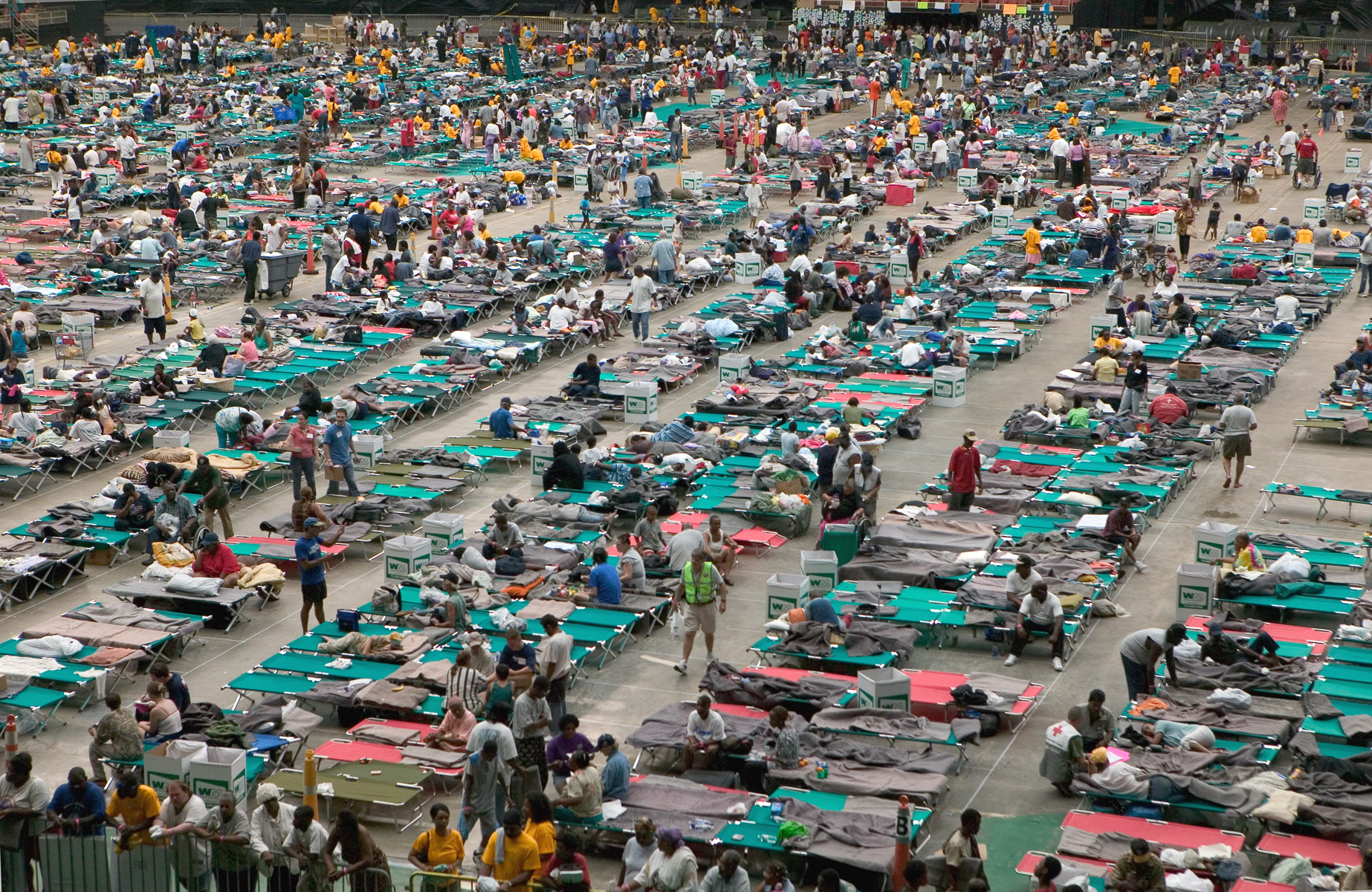We have all seen the video and images of people suffering in the aftermath of hurricane Katrina at the Superdome, waiting for government assistance that seemed to never arrive. We can learn a lot from the unfortunate events that transpired after this disaster. Let’s consider three of those lessons and what you can learn from them about taking your life in your own hands.
First, have a supply. This goes for everything you need. You should have at least a week’s worth of food for everyone in your home. And while canned food is cheaper than freeze dried food, it is worth considering that freeze dried food is much easier to put in a pack and carry than canned food. Dehydration will kill you quicker than hunger so one should always have a water filter and water storage containers (depending on your area you might want to keep them full). If you need regular medication you should keep some with your emergency food and water. And even those who don’t regularly take medication should always have basic first aid supplies on hand such as hydrogen peroxide, gauze, ace bandage, tape, and anti-biotics if you can get them. After all you do not know when help is coming for you so you need to be ready and able to help yourself.
Second, have a plan. All the supplies you could ever need will still do you little good if you do not have a plan in place prior to disaster striking. This will greatly differ for each person because of personal factors like health, budget, and especially region. Obviously those in Southern California are going to be preparing for earthquakes more than tornadoes, while the opposite would be true for someone living in the Midwest. That being said everyone needs to consider the factors that they need to prepare for and have a plan not only for hunkering down, but also for taking matters into your own hands and getting yourself and your loved ones out of a disaster area and to safety. Have a map, familiarize yourself with an alternative route out of your area, and keep the supplies on hand that you would need to execute your self-extraction.
And third, have protection. Nature isn’t the only threat out there in a natural disaster scenario. Sadly it wouldn’t take one long on YouTube to find videos of cops looting stores, women reporting multiple sexual assaults by men in police uniforms (they may or may not have actually been cops), and even police attacking an elderly woman who was hunkered down with her dogs and her food supply because they wanted to disarm her in a state of lawlessness. I don’t bring these examples up to cast law enforcement in a bad light, but to illustrate the need for self-reliance not only in a day to day situation but especially in a post disaster survival situation. You don’t need to wait for FEMA, you don’t need to count on unreliable people you don’t even know to protect you, because they might not. Obtain a means of self-defense, which could mean anything from boxing lessons to an AR-15 and everything in-between. And if you do choose to buy a firearm (just as with unarmed combat), train with it, have everyone in your house train with it, maintain it in good working condition, and have a supply of ammo (at least 180 rounds).
So be prepared, have a plan, and think ahead-because Sean Penn might not come rescue you.
If you liked that, you might also like:



If I was one of those that are without homes now I would live some place else for the next one.